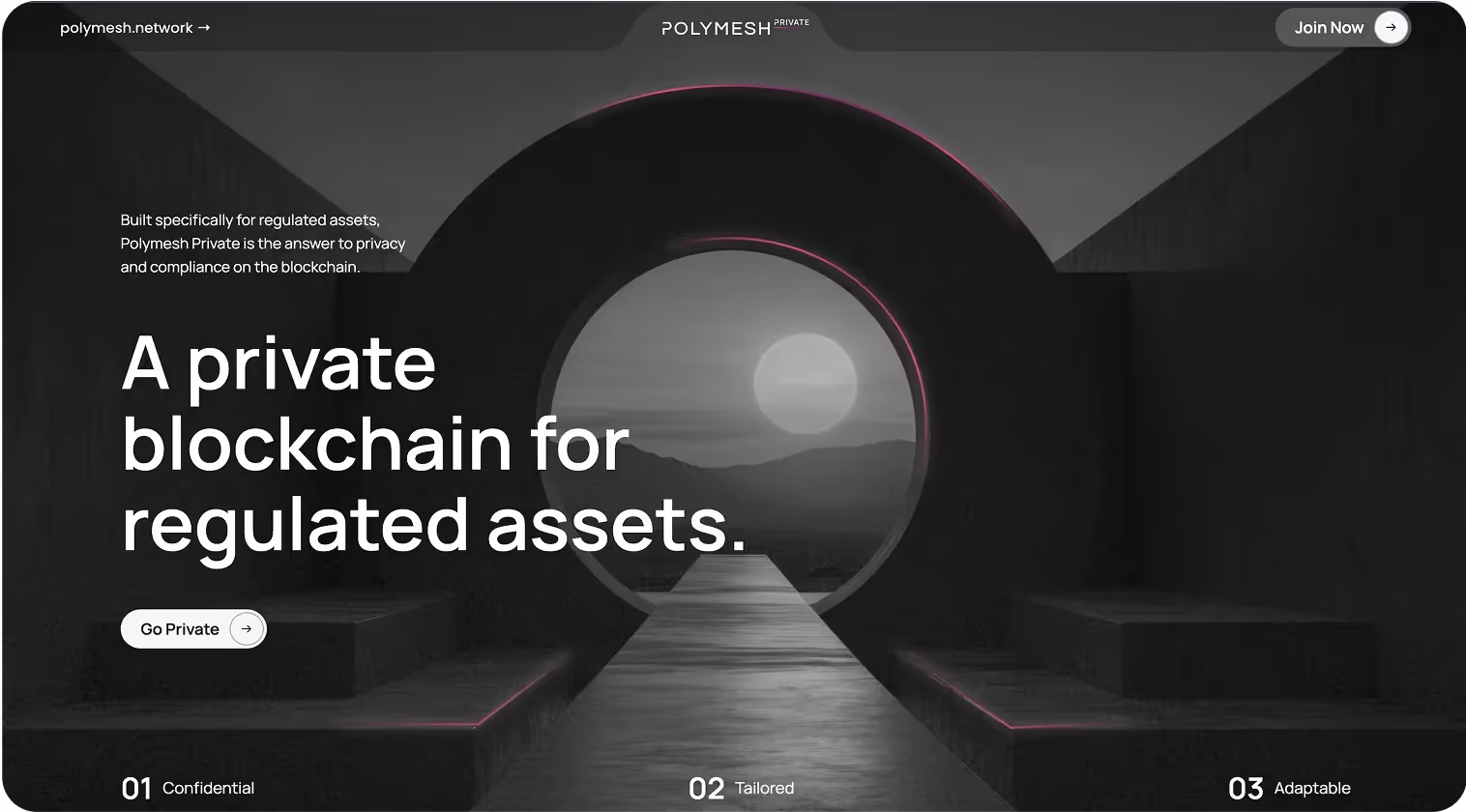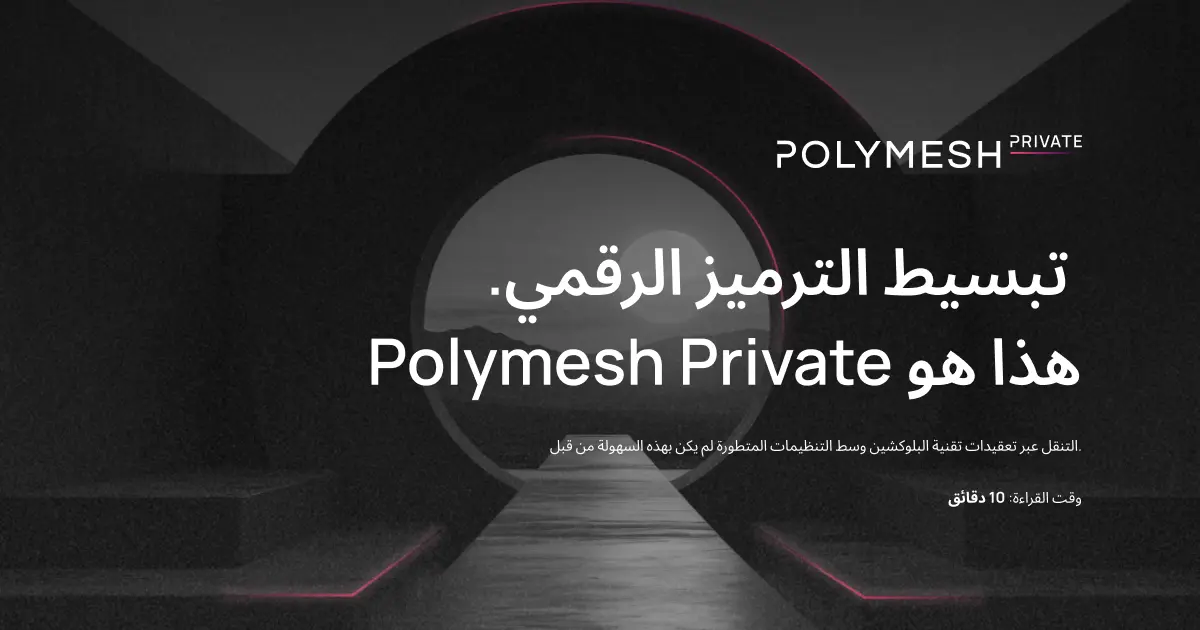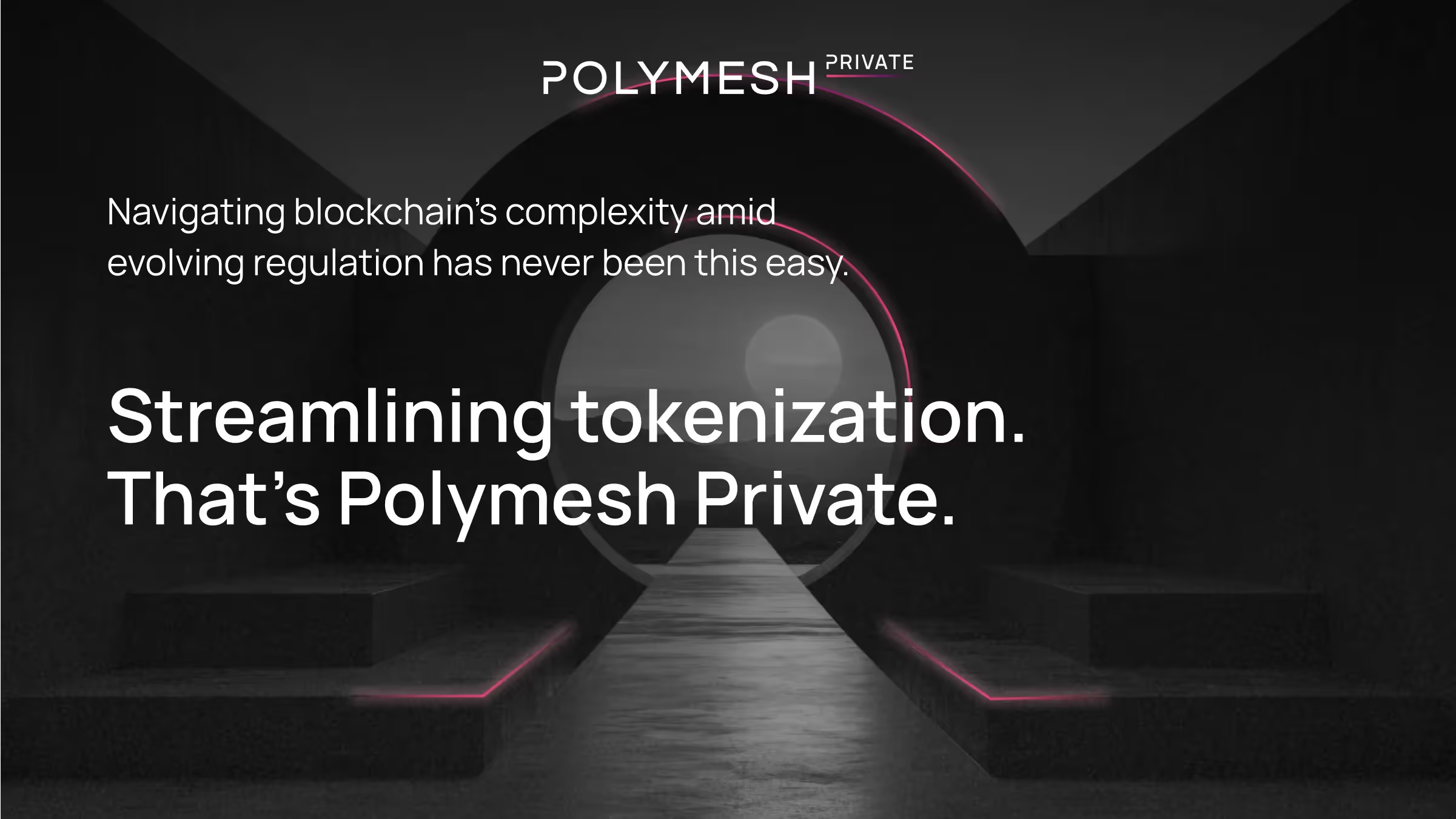How the Polymesh Private blockchain differs from existing chains
With tokenization rapidly evolving, businesses must choose between public and private blockchains, each offering unique benefits and drawbacks. Public blockchains like Ethereum paved the way for decentralized finance but are not ideal for institutions handling regulated financial assets.
As a result, many institutions turn to private networks. However, this requires institutions to either employ the time and resources to build their network or join an existing private consortium, limiting what’s under their control.
Against this backdrop, Polymesh Private stands out as the solution for regulated assets enabling institutions to benefit from private blockchain infrastructure with full control while future-proofing their business.
Built for compliance: Polymesh Private vs. public blockchains
Users of Polymesh Private enjoy the same core benefits of using Polymesh, the institutional-grade blockchain purpose-built for regulated assets. Polymesh streamlines asset tokenization and management by incorporating native functionality for governance, identity, compliance, confidentiality, and settlement.
These key pillars are crucial for institutions dealing with security tokens, especially compliance. Adhering to complex, ever-changing regulations is a top priority for industries handling regulated assets, from gold to real estate.
Public blockchains like Bitcoin and Ethereum are permissionless, meaning anyone can participate and transactions are pseudonymous. This poses significant challenges when meeting strict Know Your Customer (KYC), Anti-Money Laundering (AML), and securities regulations.
On Polymesh, users benefit from built-in KYC and AML functionality, ensuring that all participants are verified and transactions meet regulatory requirements. Customizable compliance rules embedded into tokens leverage onchain identity to automatically enforce compliance rules in transactions without using complex, expensive, third-party smart contracts. Compliance rules can be updated as regulation evolves, enabling seamless adherence to regulation within an ever-changing regulatory environment.
These benefits carry over to Polymesh Private: a bespoke, privately run instance of the Polymesh network. Its built-in compliance features allow institutions to enforce identity verification and restrict transfers based on jurisdictional and other requirements. Network operators can control who has access to the network and in what capacity, eliminating the risk of interacting with unwanted parties such as blacklisted actors. This compliance-ready infrastructure helps businesses take advantage of asset tokenization technology while minimizing regulatory and legal issues.
Enhanced privacy and operational control
Public blockchains are transparent by design, with transaction details visible to anyone on the network. While this transparency is valuable for certain use cases, it poses a significant problem for institutions dealing with confidential financial data.
Polymesh Private solves this with advanced cryptographic techniques that keep transaction amounts, account balances, and asset types confidential. This privacy feature ensures that only relevant parties can access sensitive information, allowing institutions to maintain confidentiality while still benefiting from blockchain technology’s efficiency.
Eventually, this ‘Confidential Assets’ feature will be rolled out on the Polymesh public permissioned network, enabling institutions to benefit from confidentiality even when using a public network. For now, this feature is exclusive to Polymesh Private.
Privacy on Polymesh Private is further enhanced by giving institutions operational control. Institutions can customize their blockchain environment, dictating who can access and interact with the network, setting governance rules, and even deciding whether to include network tokens or fees.
Future-proof technology with public compatibility
One of the main challenges for institutions looking to integrate blockchain infrastructure for asset tokenization and asset management is the pace of the industry.
When blockchain technology was first introduced, it wasn’t clear if it would take off––technology is full of stops and starts, booms and busts. The NFT craze and near-future doom predictions following AI advancements are two examples.
Today, even the largest financial institutions recognize blockchain technology is the future. However, there’s massive uncertainty about whether they can and should utilize the available public infrastructure, especially given the regulatory climate.
Polymesh Private is designed for compatibility with Polymesh’s public permissioned network, providing businesses with the flexibility to run on Polymesh Private indefinitely or transition to public infrastructure when they are ready.
Conclusion
Polymesh Private offers a robust solution for institutions dealing with regulated assets. Built-in compliance, enhanced privacy, operational control, and public compatibility provide a future-proof blockchain that ensures institutions can harness the benefits of both private and public technology as their needs evolve.
For more information about Polymesh Private and how it can be customized to fit your unique business needs, visit polymesh.network/private, or contact us.
Enter Polymesh Private, a bespoke privately-run instance of the Polymesh blockchain that combines the benefits of its purpose-built infrastructure with enhanced privacy and control.









































